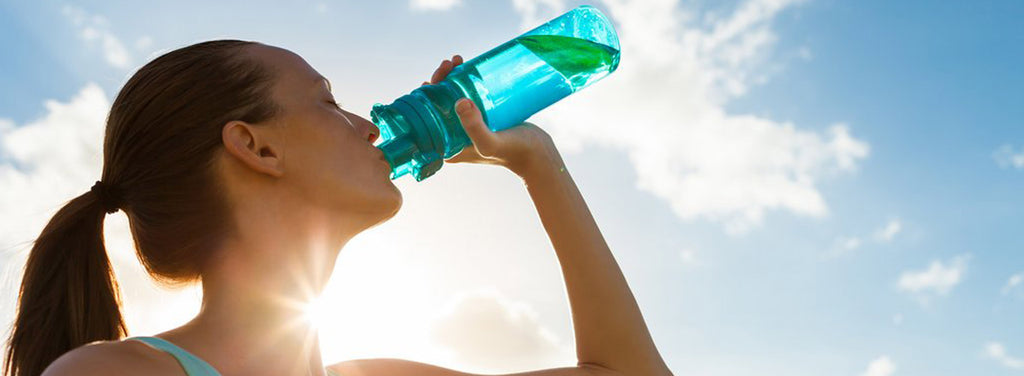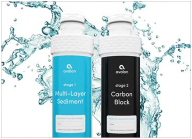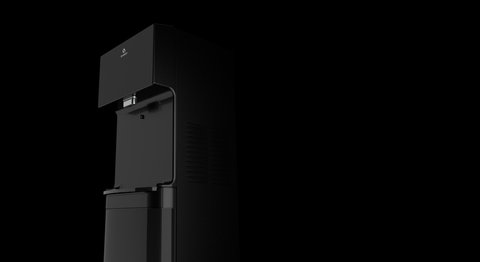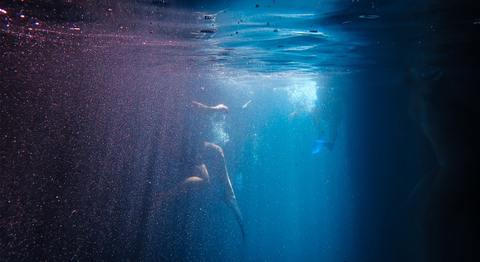
The Dangers of Dehydration
Water is a crucial element for a healthy and properly functioning body. In fact, a person can live without food for up to a few weeks, but normally can’t survive more than a week without water. Your cells, tissues, and organs all use water to help control and maintain its temperature and other bodily functions. The bottom-line is, you can’t live without water!
Since your body is steadily losing water through sweating, digestion, and even breathing, it's essential to stay hydrated by drinking and an adequate amount of fluids and eating foods that contain water.
The dangers of dehydration can range from mild headaches and dizziness to more severe condition like organ failure or death. Let’s take a look at some information and the specific hazards caused by dehydration, so that you prevent them from happening to you.
It happens to everyone.
Both children and adults can suffer from dehydration thought their symptoms might be different. Some people are at a higher risk such as:
- Babies and young children, who can’t vocalize their thirst.
- Elderly adults who already have less water in their bodies and don’t move around very well.
- People who are outside or frequently exercise that are continuously sweating out fluids.
- People who are ill and not in the mood to eat or drink.
- People with chronic illnesses like type 2 diabetes which causes frequent urination.
Signs it’s happening to you.
Getting dehydrated is easy. After a long day at the office or a quick workout, you can sometimes simply forget to drink water. By knowing the signs of dehydration, you can take preventative measures and recognize when it’s happening to you or your child.
For babies and young children, dehydration is especially dangerous because they aren’t able to explain that they’re thirsty. You must maintain a sufficient amount of liquids to prevent any nutrient loss or side effects.
The signs of dehydration in children are: dry mouth and difficult swallowing, dry diapers for three or more hours, no tears when crying, sunken face—including soft spot, eyes, and cheeks—sleepiness and irritability.
In adults, mild or moderate dehydration symptoms include: muscle cramps, headaches, thirst, lack of or dark urination, and dry mouth. As dehydration becomes more severe, adults can experience sunken eyes, very dry skin, rapid breathing and heartbeat, lack of energy, fainting, and dizziness.
In addition to the regular loss of water, if you have diarrhea, vomiting, fever, excessive sweating, or you’re urinating a lot—from a condition or pregnancy—then your body is losing even more fluids, making you more prone to dehydration.
How to stop dehydration
Having a couple of glasses of water a day is simply not enough to prevent you from getting dehydrated. Based on daily fluid loss, it’s recommended for people to consume around eight glasses of water a day—and even more during illness, hot weather, or when exercising.
Start and end your day with a glass of water. Even while sleeping your body loses water, so by drinking a cup before bed, you can prevent any loss at night. If you live in a hot, dry environment or are very active, then you will need to replenish more fluids.
Even if you don’t feel sweaty, from just an hour of exercise, your body can lose over a quart of water. You should make sure that you’re drinking before, during, and after, plus add in some electrolytes from a sports drink.
Cut back on caffeinated or sugary drinks, which are diuretics—causing frequent urination—and can leave you dehydrated. If you can’t live without your morning coffee or diet soda at lunch, then make sure you drink water after. Keep a water bottle handy wherever you go, so you always have something to drink.
Dehydration Summary
Everyone has experienced dehydration at some point in his or her lives. Whether it was a battle with the flu or a gym session that didn’t include enough water, it’s easy to lose fluids without realizing. For a healthy life and active body, you should always make sure you're replenishing the water and electrolytes in your body. Use the signs, dangers, and preventative steps above to help you recognize and stop yourself from getting dehydrated.







